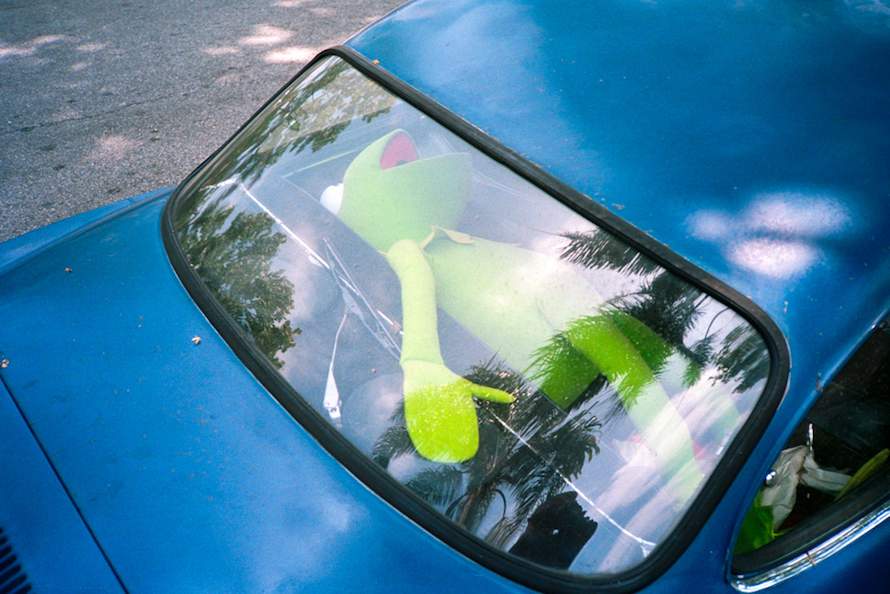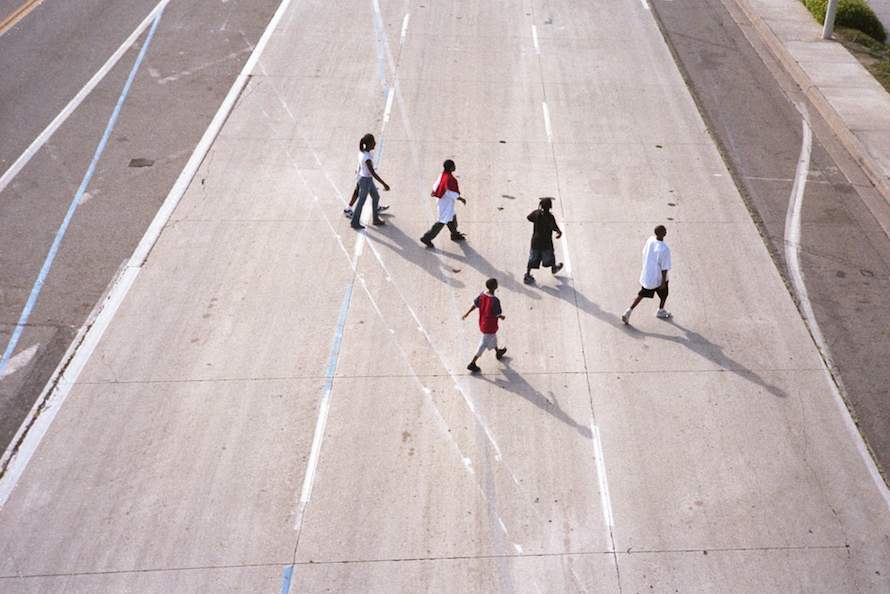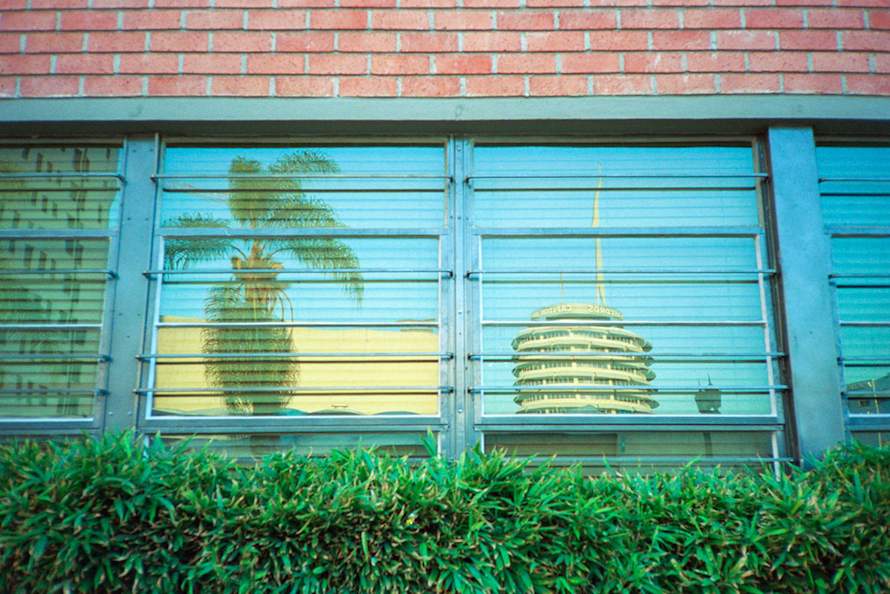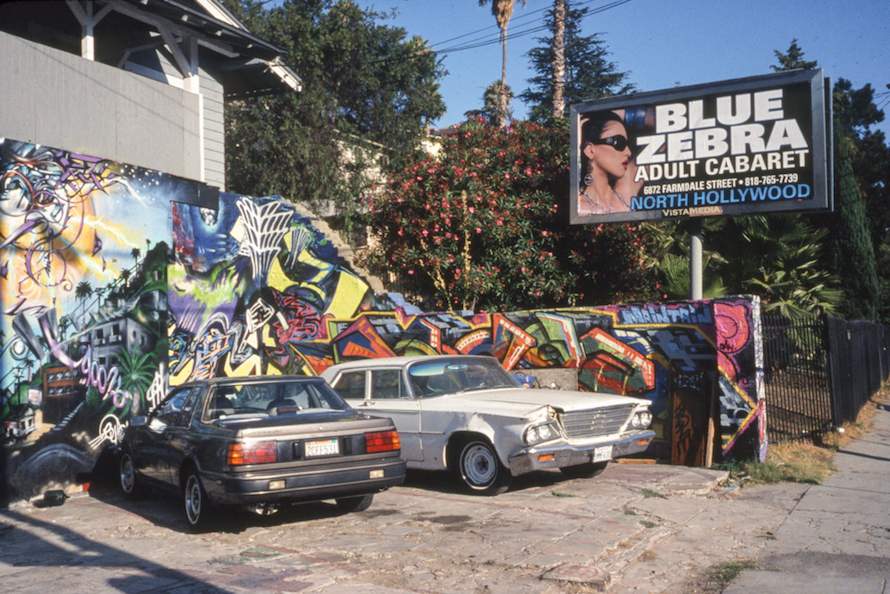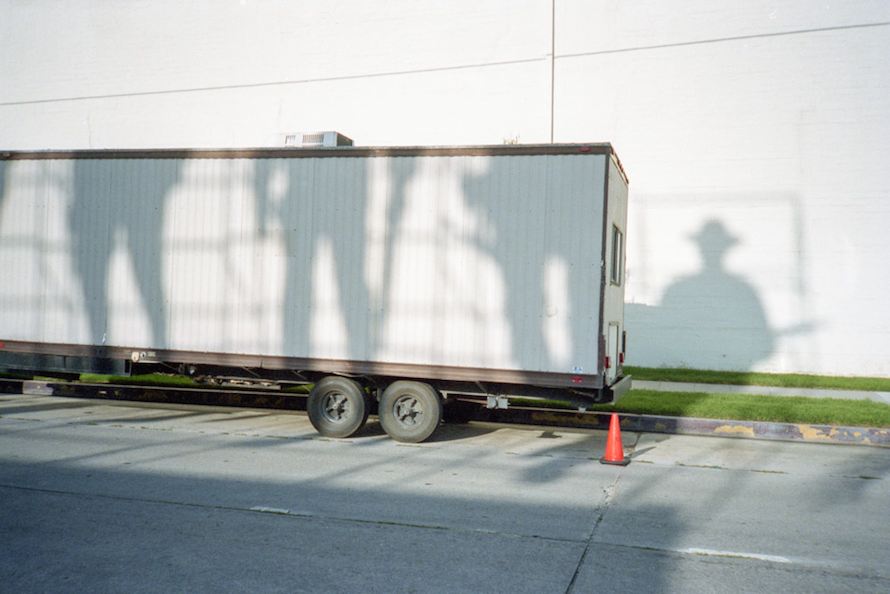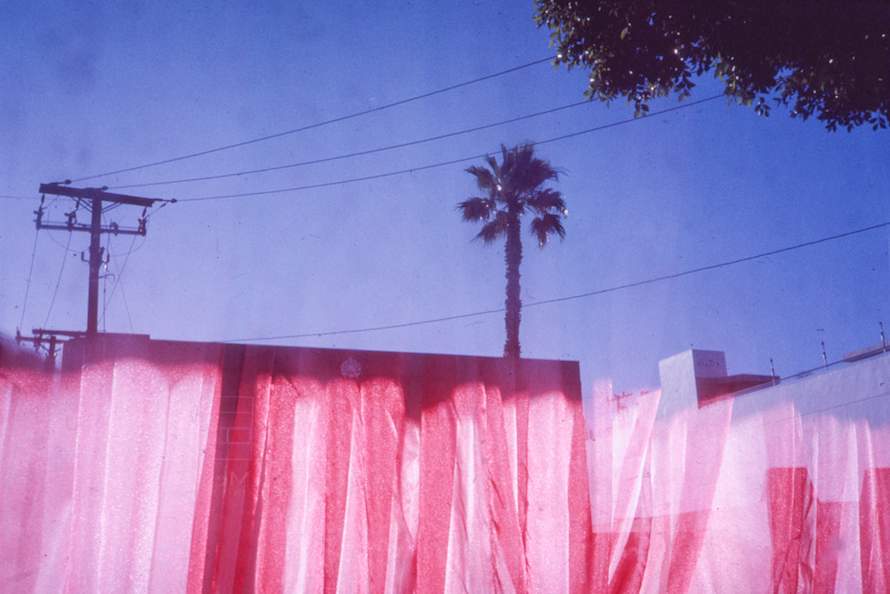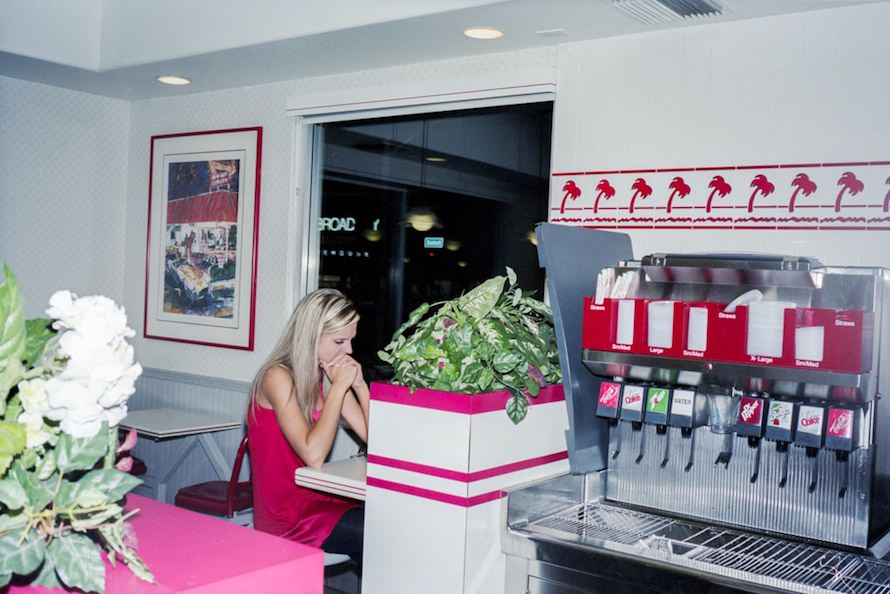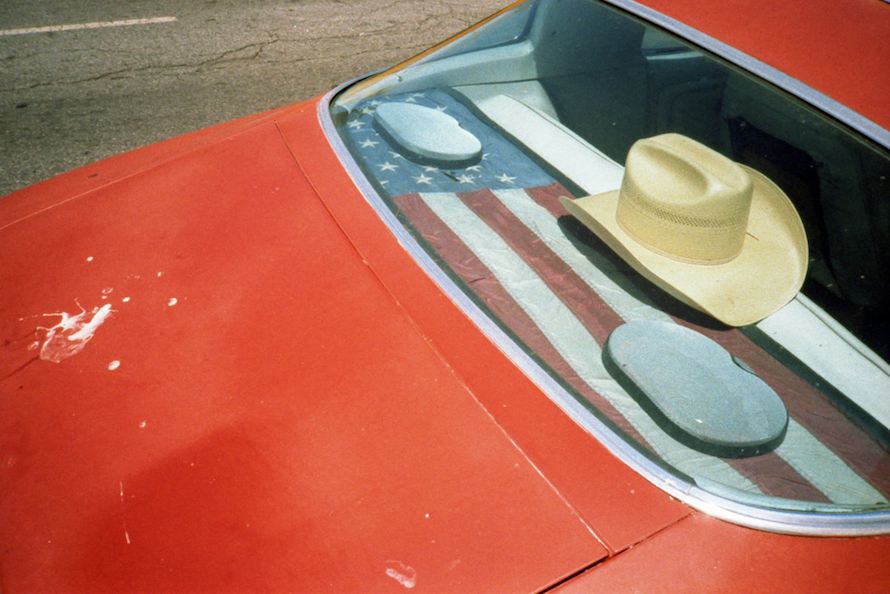How did “Genesee Ave.” originate?
Bryan Formhals:My third year in Los Angeles I moved to a new place on Genesse Ave. in WeHo [West Hollywood]. I started shooting color film around that time and was kind of obsessed with the magical LA light. I spent a lot of time walking around, thinking, and making photographs. The mix of those activities can be like a narcotic.
I felt in my gut that I probably wasn’t going to spend more than a few years in Los Angeles, so the photographs I was making started to feel like artifacts I was collecting in order to remember my time. I’d annoy my friends by always making photographs, but I think they appreciated and understood what I was doing.
I ended up leaving LA a week after Obama won the election. The photos lingered with me until last year when I revisited the negatives. I discovered a few photos I’d overlooked and started editing and sequencing them in a more deliberate way. It was this act of creating the book dummy that “Genesee Ave.” finally became fully realized and something I’d be OK standing by as a body of work.
TMN:How did you view Los Angeles when you arrived? How did you see it when you left?
BF:Arriving in Los Angeles was jolt to my consciousness. Like most people in America, I’d grown up with myths around the city. I was mostly attracted to the sun and the fantasy of Hollywood. I’d written a few terrible screenplays and done some improv so I sort of had the cliché dream.
After a few years of failure, that stuff faded away and I started to see the city in a more pedestrian way. It’s a crazy, complex metropolis that’s bloody difficult to understand, and really annoying to get around in. If you spend enough time walking around LA, you start to understand how bleak the place is for many people.
I still love Los Angeles, though. There’s something bizarre and inspiring about the place that I can’t really articulate. Guess you just have to try and live there for a few years.
TMN:What’s your favorite camera at the moment?
BF:Mamiya 7. If I could, that’s all I’d use. But I have an addiction to making photographs, that I appease by using the Fuji X10. It’s the most comfortable I’ve been with a digital point-and-shoot camera.
TMN:What are the worst aspects of street photography?
BF:Torturous question. I could rant about a bunch of bullshit that might get some people worked up. But since all of that social drama is boring, I’ll just say that the worst aspect of street photography is that no matter how much time you spend or how good you think you are, you’re still going to end up failing the majority of the time. That’s just the way it goes.
TMN:When are you most excited about street photography?
BF:When I’ve been walking for two hours, my back and feet hurting, but I keep going because I know there’s something else to see, some possible photograph waiting for my intervention. This is the shit. This is when I’m in harmony with my reality and everything makes sense. This is where all the questions I have about photography, art, life are answered. It’s dharma, the dream, the next dimension. It’s a state of bliss that’s marvelous if you can attain it. You are free.
TMN:When was the last time you saw a piece of art and felt confused?
BF:Watching Upstream Color the first time was disorienting in a way that makes me excited about art.
TMN:What do you typically fall in love with too fast?
BF:Women, a bar stool, and vernacular photography.
TMN:What are you working on now?
BF:I’ve been photographing in Queens for the last year. I’m also working on a book with Paul Kwiatkowski that touches on a few of my favorite subjects: true crime, erotica, sci-fi, an unknown future, boring buildings, escape, etc.
